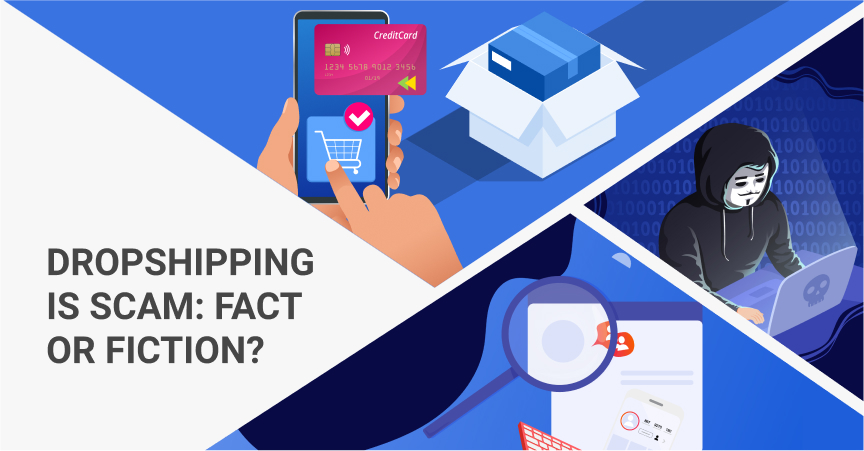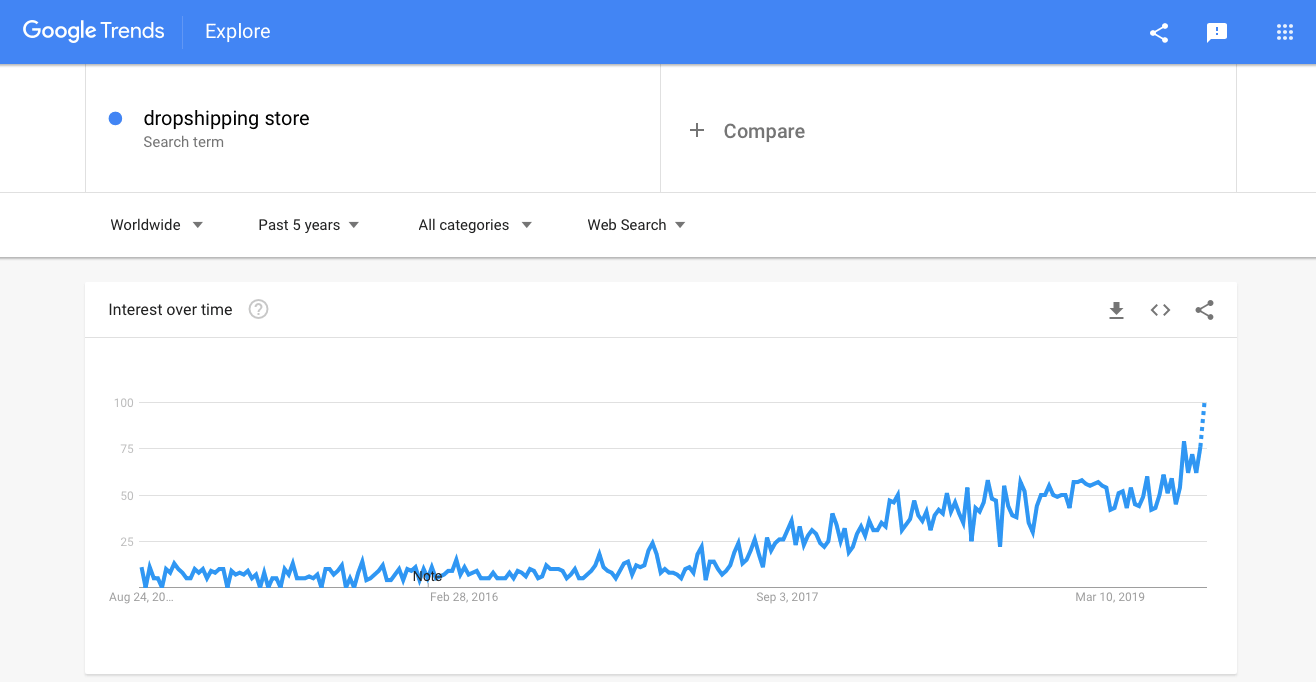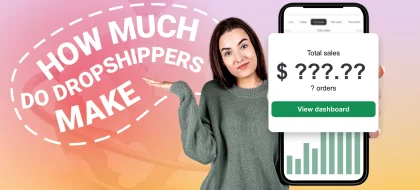Dropshipping Is Scam: Fact Or Fiction?
What makes people think that dropshipping is scam? Let’s see!
Every day, more and more people come across dropshipping business model and learn about its benefits and possibilities.
Some of them get really skeptical: why and how does it actually work? Is it really as good as others describe it? There must be some hidden tricky parts!
Today, I’d like to go over the most common reasons why newcomers might think that dropshipping is an unfair, suspicious, or totally dishonest business model. Sounds like fun, doesn’t it? 😉
Dropshipping is scam because you’re fooling your buyers
“As a buyer, I can pay $2 for an AliExpress product. Instead, you make me pay $15 for THE SAME item from your dropshipping store. What’s more, you pretend you’re selling a branded item. Aren’t you ashamed of yourself?”
That’s how some people think about the idea of dropshipping. To some, this point of view may even sound quite reasonable, but here are the details these people miss out.
- Not everyone can (or want to) buy directly from AliExpress
According to Statista estimates, in 2018, there were 3.9 billion Internet users worldwide. At the same time, AliExpress only had 150 million overseas buyers in 2018.
What do these numbers mean?
A really huge percentage of Internet users across the globe doesn’t make purchases on AliExpress.
Some buyers don’t like the shopping experience it provides because of a huge amount of questionable items and unclear search filters. At the same time, others just don’t want to figure out how AliExpress works or simply don’t know that it exists.
Whatever the reason is, these online shoppers look for other digital marketplaces than AliExpress. For them, neatly organized dropshipping stores with high quality customer service are a convenient and trustworthy alternative.
- Dropshipping stores are branded; dropshipping products are not
Here’s an important thing to consider when we’re talking about ‘fake’ branding in dropshipping.
Yes, dropshipping store owners might create brand image, mission, and even a legend for their businesses. Still, normally, they don’t really act like the products are actually branded.
They edit the products’ pictures and descriptions to remove the mentions of AliExpress and Chinese sellers, and that’s it.
It happens because most typically, dropshipping business owners don’t influence the manufacturing process of the items offered by AliExpress suppliers. Therefore, they don’t put their brand names on the items, don’t customize their appearance, and don’t promote them as the products made under their own brand.
Instead, the brand characterises the overall tone of the brand owner’s communication to customers, the visual side of the store, and the community built around this business.
There might be exceptions, of course. Dropshipping business owners can negotiate with AliExpress sellers and ask them to make print on demand products or customize them in some other way. In this case, of course, the entrepreneurs can rightfully position and promote these items as branded products, and there will be nothing wrong or dishonest about it.
- It’s up to the buyer to make the ultimate shopping decision
At any point of time, online shoppers are free to take a pause and check if they can buy an identical product from AliExpress.
Buyers always have a choice: to either order an item from a specialized online store or to look for it on AliExpress – and probably face some challenges during the product choice or communication with the seller.
Speaking of this, I’d like to mention another aspect that makes some people have doubts in dropshipping business model.
Dropshipping store owners are just middlemen who ask money for nothing
Getting back to our example from the previous chapter, let’s discuss the following: why do dropshipping store owners ask $15 for the products that originally cost $2 on AliExpress?
Before they set this price, they complete lots of tasks to ensure a positive shopping experience of their customers!
Most typically, dropshipping store owner’s job includes the following:
- Choosing a thematic niche for the store
- Selecting high quality AliExpress items that fall into this product category
- Checking the product information along with customer reviews and rating
- Evaluating the quality of service provided by the seller of this item
- Making sure the item can be safely delivered to the buyer’s destination
- Researching the potential buyers’ needs and wants to create the most relevant product offer
- Reading market news and updates to stay aware of the latest trends and keeping the customers satisfied with the service
Every job should be paid fairly. And actually, buyers don’t mind paying a bit extra when they really want to enjoy a well-thought product range and customer service that meets their expectations.
But are online shoppers the only group of people who, in public opinion, can ‘suffer’ from dropshipping? According to some statements you can hear, it’s not – and this brings me to my next point.
Dropshipping is scam because it doesn’t bring profits, is overrated, and only feeds the people who sell books, courses, and business management tools
Yay, here we go again 😉
Okay, so here’s the stats on the dynamics of public demand for dropshipping stores. Does it look promising? Yes. Does it mean that the market is overly saturated and there is no place for newcomers to also benefit from it? No, and here is why.
And indeed, do dropshipping stores bring profit to their owners?
Yes, they do; it’s proven by the real-life stories people share on thematic forums and in industry blogs. Statistically speaking, it’s quite a representative sample that proves the efficiency of dropshipping.
Yes, the first buyers don’t magically appear at the same second a new dropshipping store is put into operation – it would be stupid to deny that. But even when first sales don’t come easy to beginners, they overcome these challenges with the due patience, effort, and learning.
And speaking of learning…
It’s commonly believed that anyone who’s selling you a guide on making money is a scammer, and it’s easier to profit from selling finance advice than from following these paid tutorials.
Probably, it is; but why should you necessarily request this paid advice?
Why not educate yourself through the free guides, video tutorials, and bits of personal experience shared by other entrepreneurs? What’s the reason to subscribe to a paid webinar if all the same ‘super exclusive top secret dropshipping tips and tricks’ are freely shared all across YouTube?
Dropshipping is the business model that doesn’t require you to make super large startup investments. In fact, you can even cut down the cost of the strictly necessary business elements like domain, hosting, and CMS.
So, if you’re coming across an opinion that dropshipping is scam, don’t let anyone discourage you by making you believe you’re involved into an dishonest or unprofitable activity. Think critically: what are the facts?

















